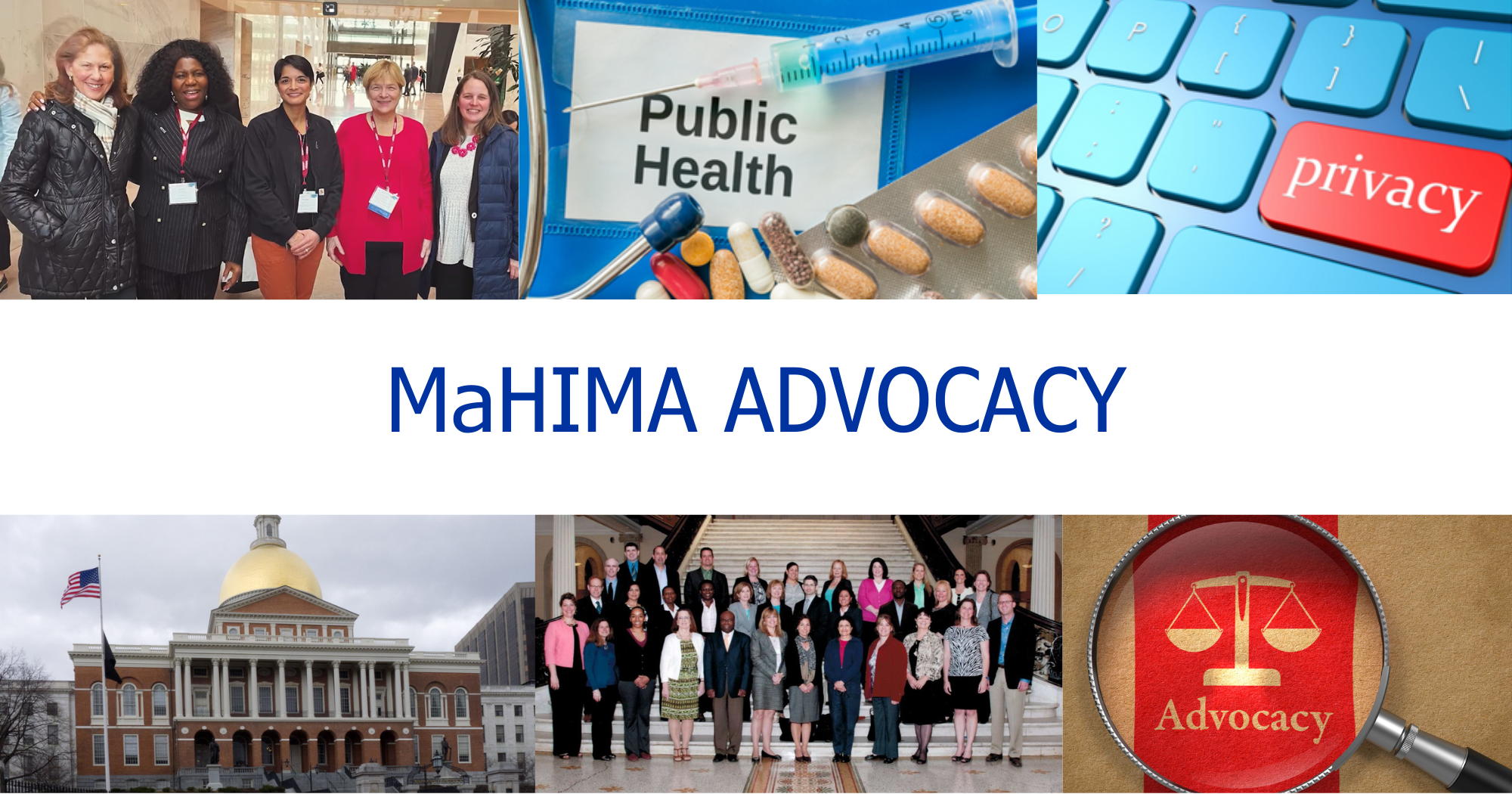|
As a leader in the Patient ID Now Coalition, AHIMA, with the coalition and our champions on Capitol Hill, has developed legislation to improve patient matching. That legislation, H.R.7379, the Patient Matching and Transparency in Certified Health IT (MATCH IT) Act has been introduced by Rep. Mike Kelly (R-PA) and Rep. Bill Foster (D-IL)! AHIMA continues to need your help to raise support for the MATCH IT Act of 2024! View this one page overview. Please reach out to senior leadership at your organization. Here is the AHIMA toolkit to assist. AHIMA Advocacy Training Modules Module 2: Understanding the Regulatory Process and Federal Regulatory Industries Module 3: How to Meet with Members of Congress and Elected Officials Module 4: Leveraging Social Media for Grassroots Advocacy Our advocacy agenda seeks to transform health and healthcare by connecting people, systems, and ideas. At AHIMA, we’ve embraced three principles that underpin our work, our outlook, and our advocacy: access, integrity, and connection. As we work toward meaningful legislative and regulatory changes in 2023, AHIMA will work together with our members, national healthcare organizations, and other stakeholders to advance an advocacy agenda to realize our vision. AHIMA advocacy leaders shared best practices for organizing and conducting a state-level Hill Day. A best practices checklist based on that discussion is now available to download. 42 CFR Part 2 Final Rule - Released February 2024 Health Information Technology To achieve nationwide interoperability of health information technology that can exchange data while improving care, we provide comments and feedback to federal regulators on a variety of topics, including interoperability, data standardization, mobile device applications, emerging technologies, and more. AccessIndividual Access: Enhance individuals’ electronic, timely, and seamless access to their health information.
Consumer Engagement: Empower individuals to make better decisions about their own health by using trusted data from traditional and emerging data sources. Affordability: Ensure patients have access to timely and accurate information about the cost of healthcare services to make informed care decisions, including information about their expected out-of-pocket costs. Privacy: Address privacy and security gaps of HIPAA non-covered entities that collect, access, use, disclose, and maintain electronic health information. Cybersecurity and Information Security: Enhance and improve the sharing of cyber threats, risks, and cyber hygiene practices in real-time. Behavioral health: Encourage policies that further integrate and coordinate behavioral health information with physical health information. Healthcare Reform: Promote the continuity of accurate, timely, and trusted health information regardless of health insurance coverage. Connection Patient Identification: Enhance accurate patient identification to improve patient safety, interoperability, and the appropriate use of workforce resources.Integrating Clinical and Administrative Data: Enhance and influence efforts to better integrate clinical and administrative data to improve the patient experience, reduce clinician burden, and potentially reduce costs. Interoperability: Champion modern data standards (including application programming interfaces) and related infrastructure to support technical, functional, and semantic interoperability across healthcare. Public Health: Advocate for the use of accurate and timely data for public health responses and initiatives while protecting the confidentiality, privacy, and security of an individual’s health information. Social Determinants of Health: Promote the collection, access, sharing, and use of social determinants of health (SDoH) to enrich clinical decision making and improve health outcomes, public health, and health inequities in ways that are culturally respectful. Integrity Data Quality: Advance the completeness, accuracy, and timeliness of health data by influencing the development and maintenance of national and international coding standards. Data Integrity: Influence and advance policies that promote the accuracy, consistency, and trustworthiness of health information regardless of its form, origin or application. Health Equity: Advocate for the collection, use, and sharing of accurate, unbiased, complete, and standardized health information as an integral part of efforts to reduce and eliminate health disparities and inequities. Value-Based Care: Promote new payment and delivery models that leverage accurate, timely, and complete health information—as well as technology—in new and innovative ways. Telehealth and Remote Patient Monitoring Technologies: Expand access to care through the use of telehealth and remote patient monitoring technologies, while ensuring the continuity of accurate, timely, and trusted health information and also protecting patient confidentiality, privacy and security. Resources Foley Hoag Health Information Privacy and Practice Blog Centers for Medicare & Medicaid Services Office of National Coordinator for Health Information Technology National Committee on Vital and Health Statistics MaHIMA Legal Publications |

